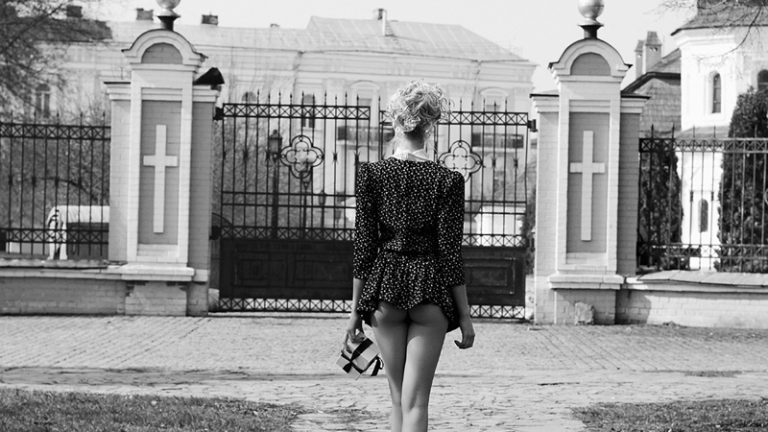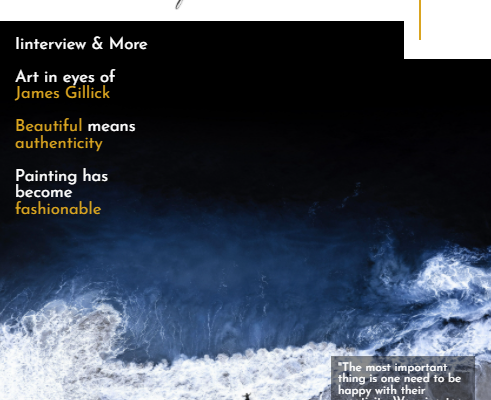Fearlessly and provocatively, they plunge deeper and deeper into a black and white world of juxtaposition, mysterious shadow and seduction. Nothing restrains their visual poetry, their penetrating the soul. No inhibition. No dread-inspiring traditions in male-dominated, ultra-conservative Ukraine. No artificial boundaries blocking discovery. Dasha and Mari are two rebellious yet engaging spirits, forcefully and relentlessly demanding artistic freedom. Tired of the constraints, the heaviness in their midst, they want to destroy taboos and prohibitions. Believing only in revealing light, aromatic scents, and soulful qualities in their photographs, they’re dedicated to honoring the female body, exposing its strength, fragility and uniqueness.
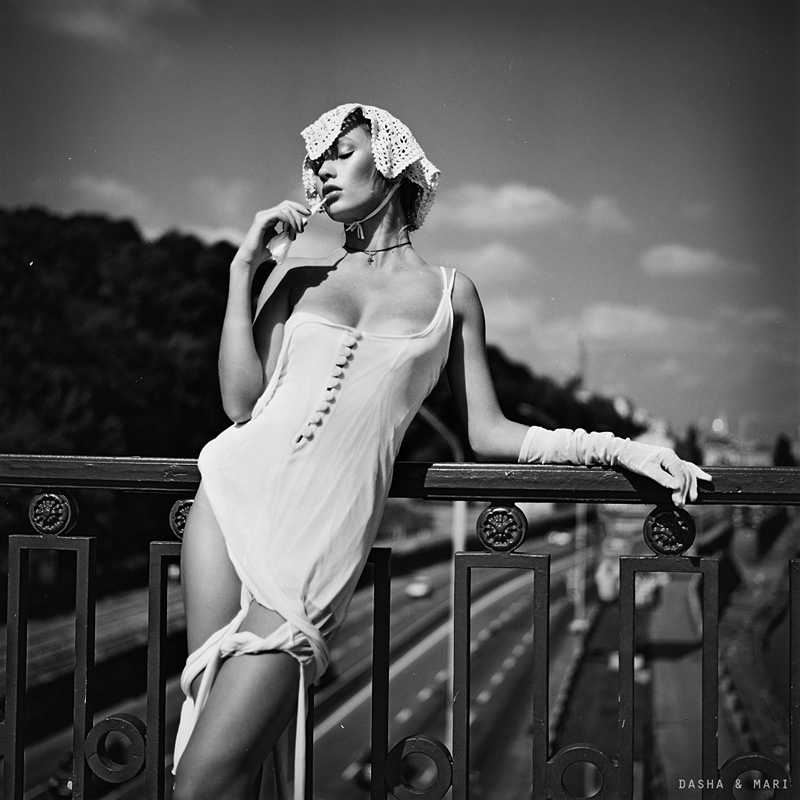
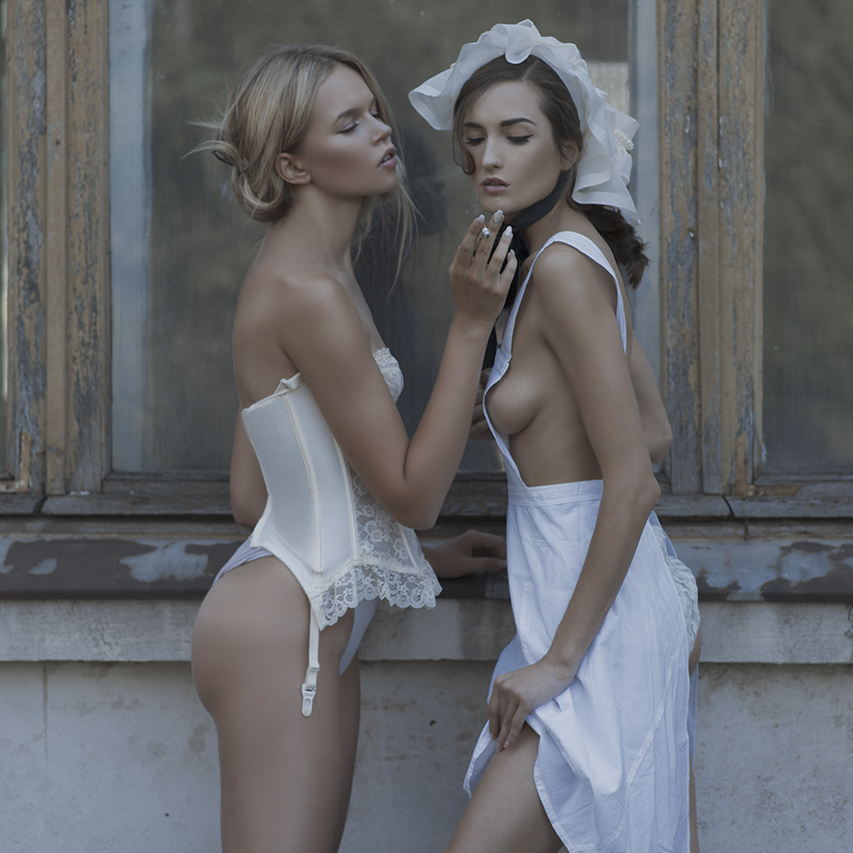
But equally critically, through their own sensitive and heightened vision, these two sisters, hope to escort us into a realm of complete liberation, unleashed and powerful portraiture—giving us a lens into daring and stunning eroticism. “No matter what criticism we face, we are going to continue to allow our fantasies to flow into reality in a mesmerizing way, to explore the deep, dreamy, and mysterious in our photos,” says Dasha, 35, as her twin sister Mari nods approvingly in their Kiev apartment. “We live in our own world, our own thoughts and sensations, so we will make our compositions, our music.” Surrounded by books, flowers, Nikons, Hasselblads and other photographic equipment, these two self-described “seekers of melodies,” with a penchant for giggling and never taking themselves too seriously, are essentially strangers in their own land. Here there is a very limited art market, scant interest in collecting their “Psychological Portraits.” They also understand the Ukraine is a deeply-embedded male patriarachy, that the Eastern Orthodox Church, so enriched—and restricted—by visual symbolism, frowns on sensual and suggestive images.
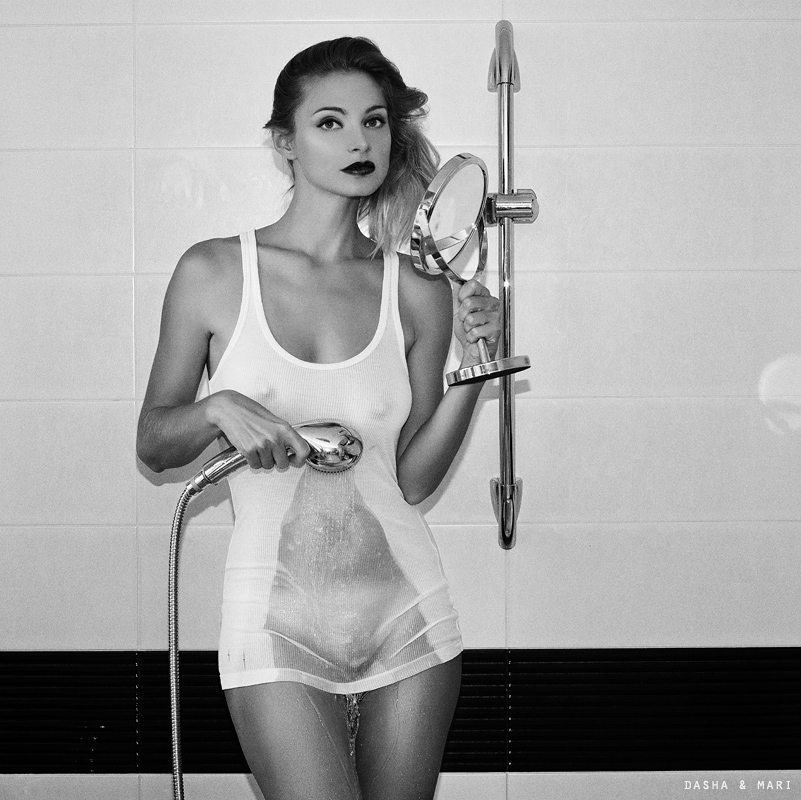
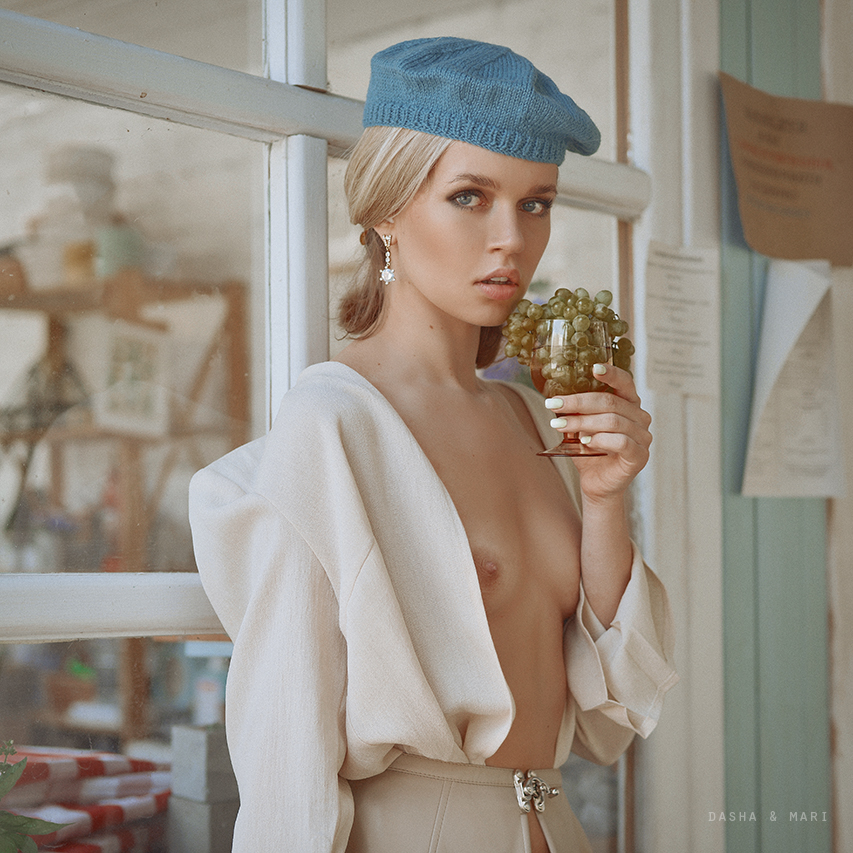
Dasha and Mari barely care about such opprobrium, demands that they conform to restrictive social constraints. Passionately imbued “to honor what we feel inside, to picture the tender, gentle, exciting bodies of women,” they dauntlessly infiltrate such labyrinths as Religion, Sin, Sexual Freedom, the Eternal, and Love with all its complications. Admiring dramatic black and white images from their Philosophy of Sin series—a woman intently and lustily licking a gun barrel, and a bare-breasted “heretic” in long black veil shamelessly standing in front of a church, clearly defiant and eager for attention—Mari grins, delightedly. It’s a smile edged with naughtiness, yet also one that emphasizes her confidence, her faith in future success. “We are very conscious of the world, the chaos, the living in darkness at times,” she muses, convinced Dasha agrees—for they live one mutual totality–workspace, vision, and interlocking roles during every photo shoot.
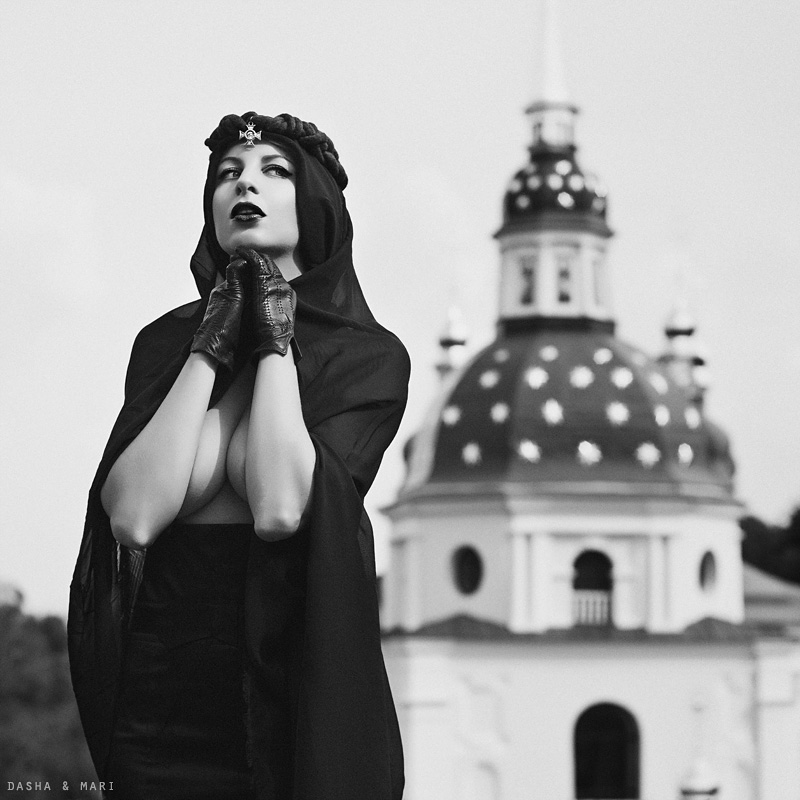
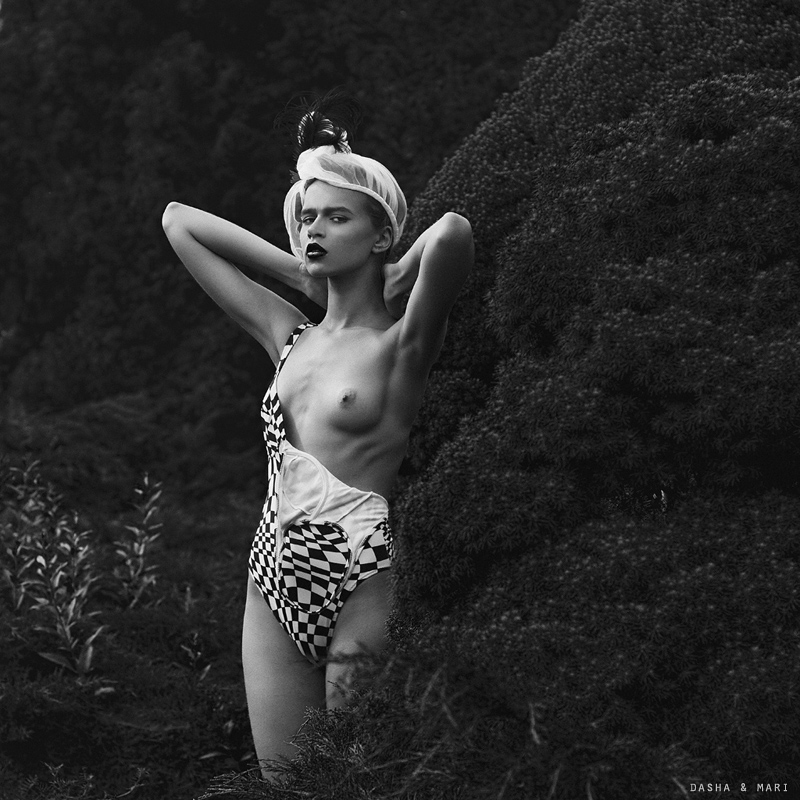
Barely pausing, Mari continues, “That veiled woman in front of the church….It’s a mysterious world….we want to probe the unknown. There she is….one moment. Sin, the limits people can cross. There are many aspects to sin, many revealing moments. “We hope to capture those deeper, more expressive moments, to illuminate them, to fashion a brilliance for others. This is simple for us. Our passion. We live our work. We feel it intensely, night and day. ”Luminosity, looking beyond the superficial to discover the undertones of those “deeper moments,” their nuances, “scents” and significance, has long been their critical pursuit.
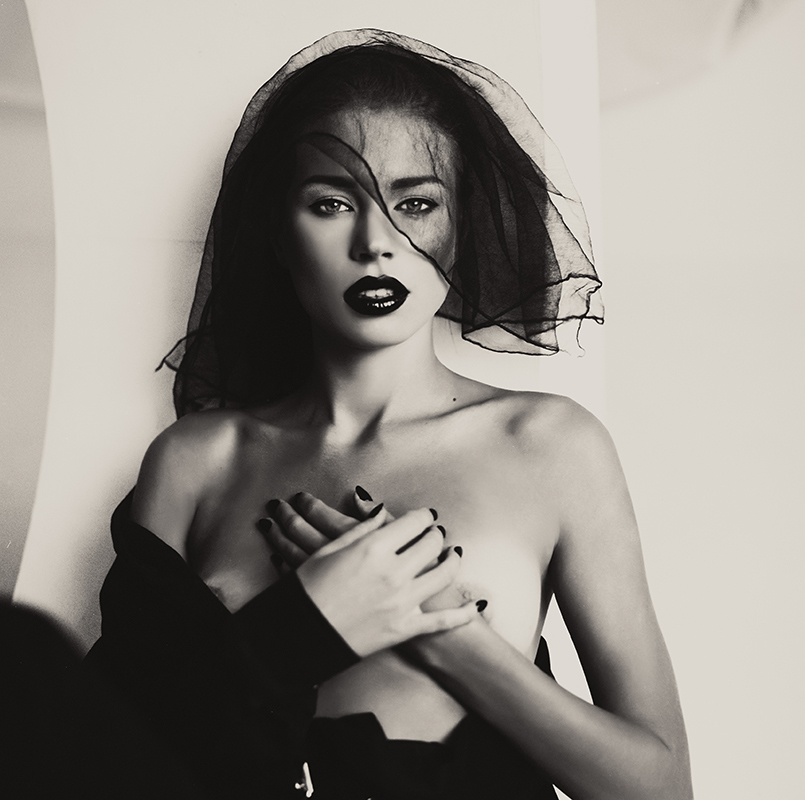
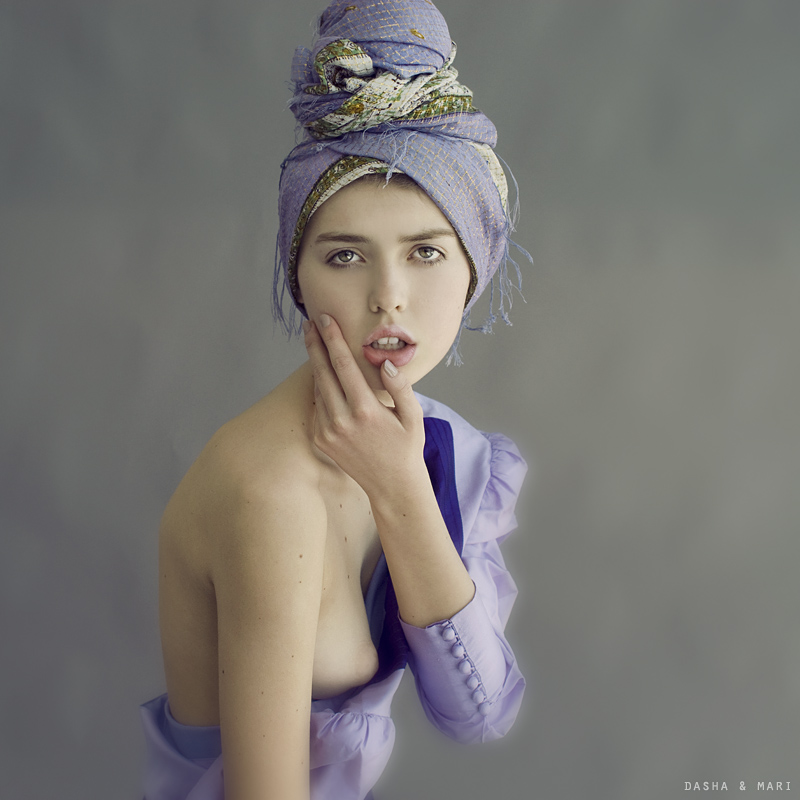
Content to live in their private, internal world, one with distinct perceptions of beauty, the tall, winsome Dasha reminisces, “In our house, as children, we felt a rich and deep connection with details and aesthetics. We had our own world back then. We had very few friends, but we had objects, broken glass, plants, succulents, perfume bottles, and of course we had our mother, Tatiana. “A botanist, Tatiana is a very detailed person, who greatly understands the beauty of exotic objects and plants. A very determined woman. We got the feeling that plants, objects, were very treasured, that they conveyed messages, and were also mysterious. ”Recognizing that the bounty around them was “composed of millions of ingredients,” the twins moved from making dolls to taking photos once they received their first camera at age 16, an Olympus mju II 35mm. Once becoming familiar with other photographers’ work (now they quickly dismiss comparisons with such iconic giants as Helmut Newton), they never felt impelled to copy a certain style or to follow any rules. They instead began to appreciate silhouettes, shadows, light, contrasts, the “magic of telling stories” through simple, yet fascinating compositions.
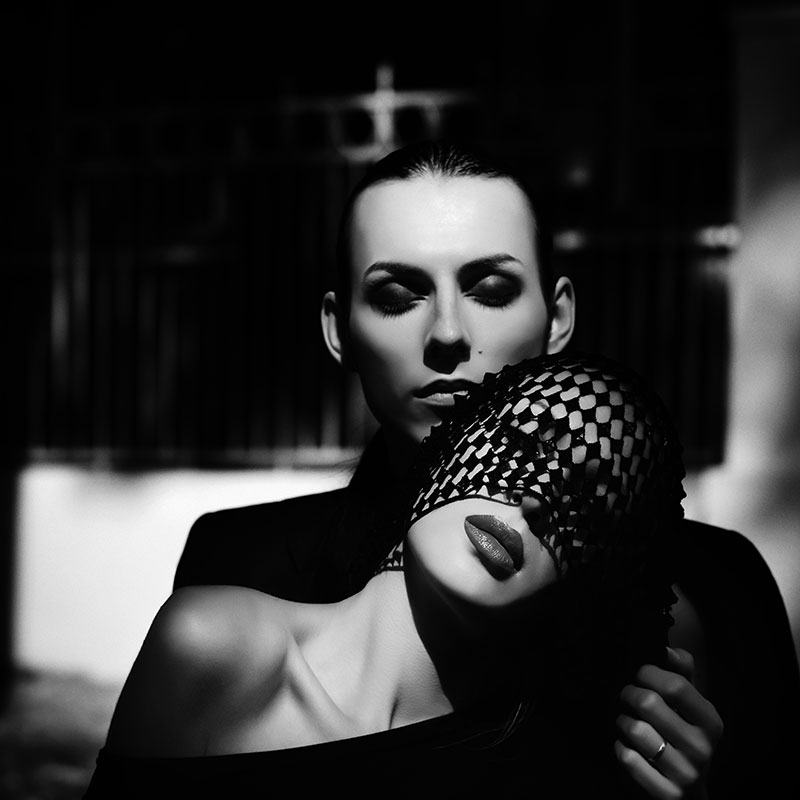
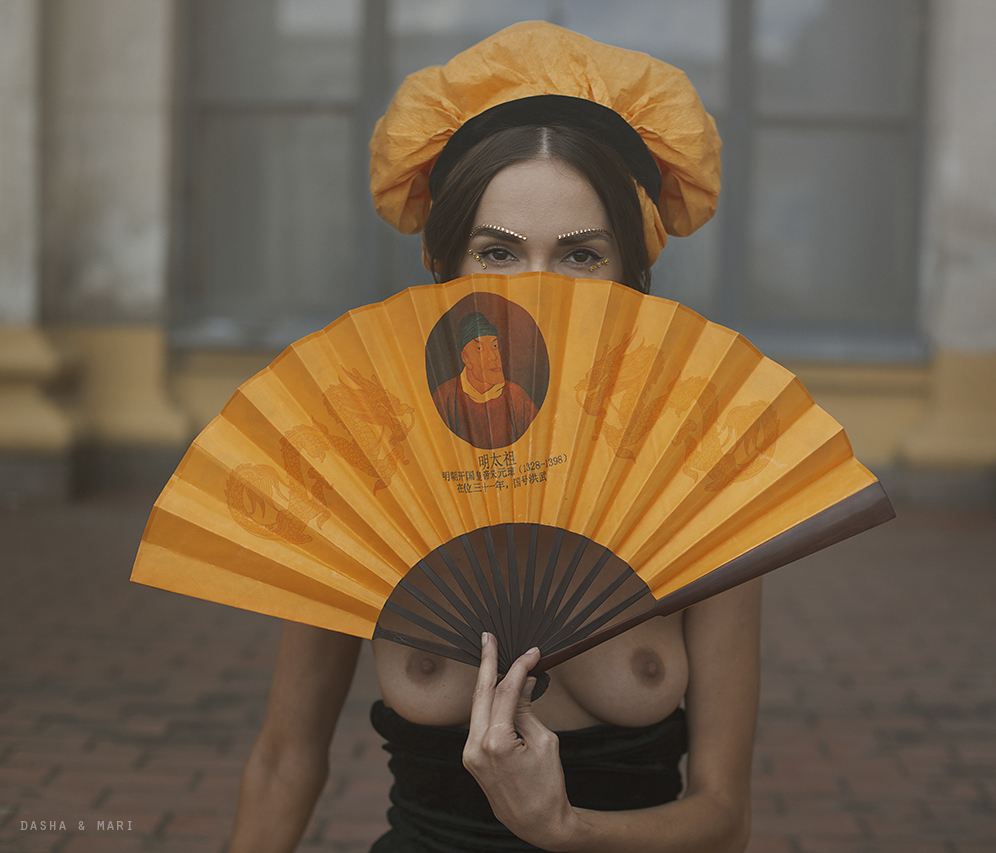
That hope to create melodic, even “aromatic” images, those composed of “soul, senses, spices and secrets,” continues to stir both women. Finding commissioned projects that allow them to express their deepest personal emotions is rare (all work has ben dramatically diminshed during the Pandemic in Ukraine and elsewhere). Yet fashion photography stints keep them financially afloat, and even that work has a definite edginess. Or a “sharpness,” as Dasha insists, “a connectedness” with the viewer that provokes thinking about the image’s aesthetics and message. Quickly elaborating, she adds, “We always want clarity. We hope to clearly show our emotions, the depth of them. What is important to us, even if that upsets some people. ” Clearly enjoying a few sweets while preparing tea with hints of blackberries, Dasha continues, “Connecting with fantasies, with souls, that is important to us. We want to explore them, reveal their inner light.”
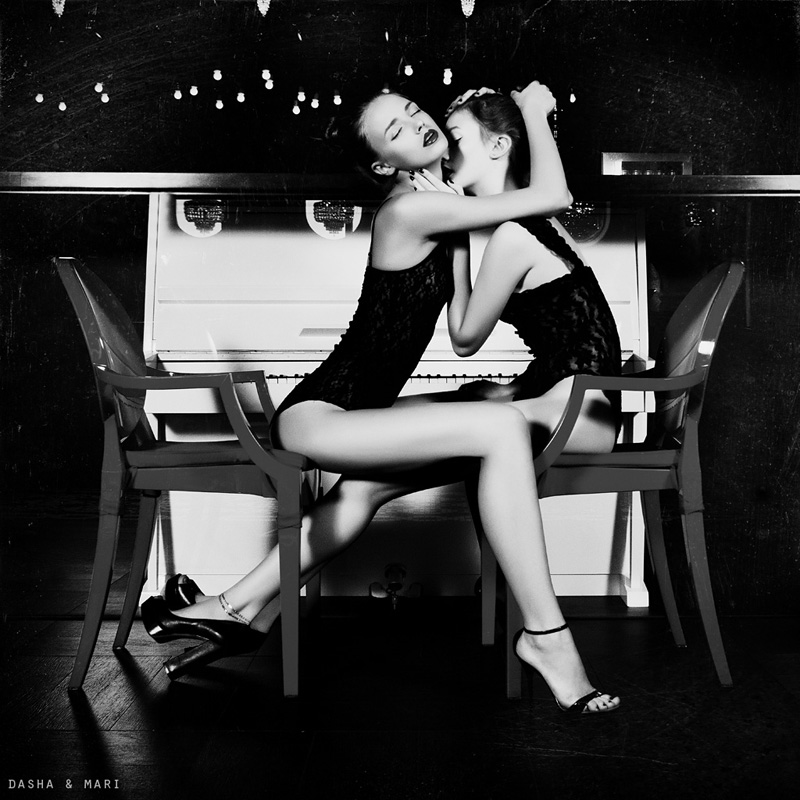
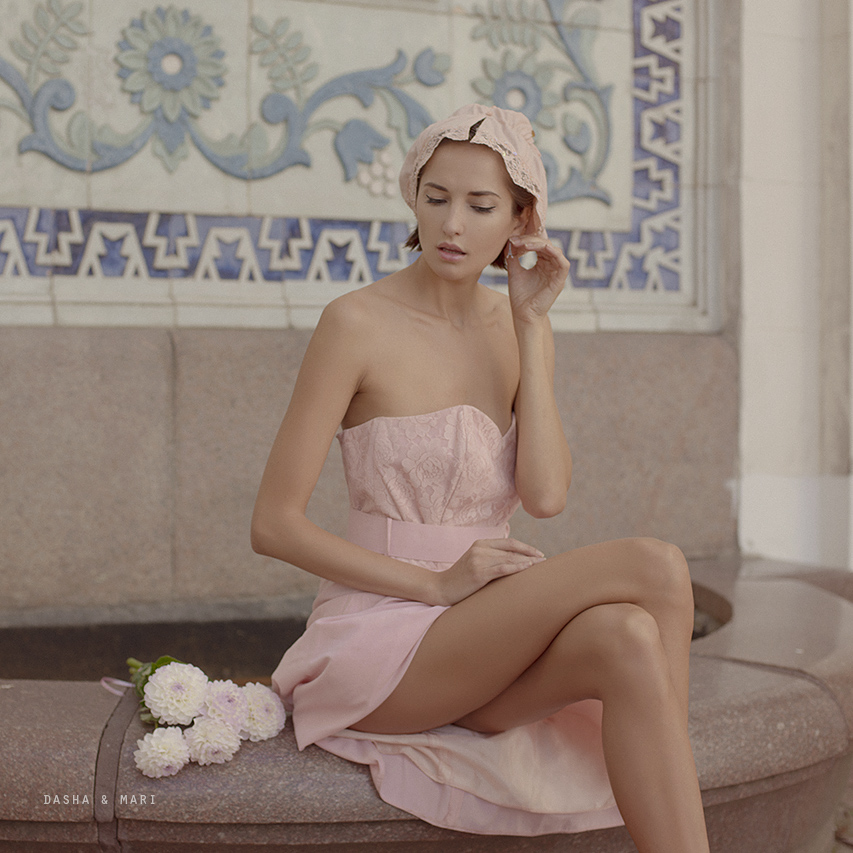
Looking at numerous images on Instagram, photos with a cinematic quality, flaunting carefree, luminously dreamy and erotic women (many of them lolling on the grass or in Eden-like gardens, embracing or connecting with each other in various ways, revealing their lustrous bodies), Mari says, “Look at this photo, Chains. She’s all about breaking free, power, unrestrained freedom.
“Lady Cat, she is simply provocative. Intense. Beautiful. She appreciates her beauty, wants the world to feel it. Our photos of women with grapes, they are goddesses. A return to the past. Cinema and Hotel Noir, they too recreate a period, a return to a much better era of elegance. We want to go back in time.”
Clearly thirsting to live in a Hotel Noir world where primal black and white virtues (such as tender sexuality, the emotional, majestic significance of moments, presences), were what they call, “elixirs for the imagination.”
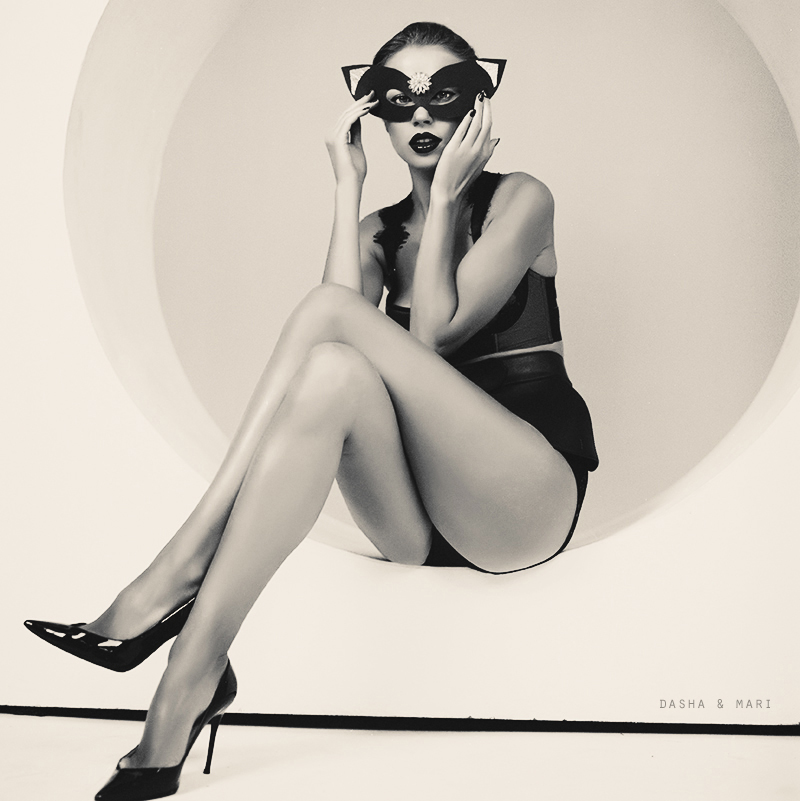
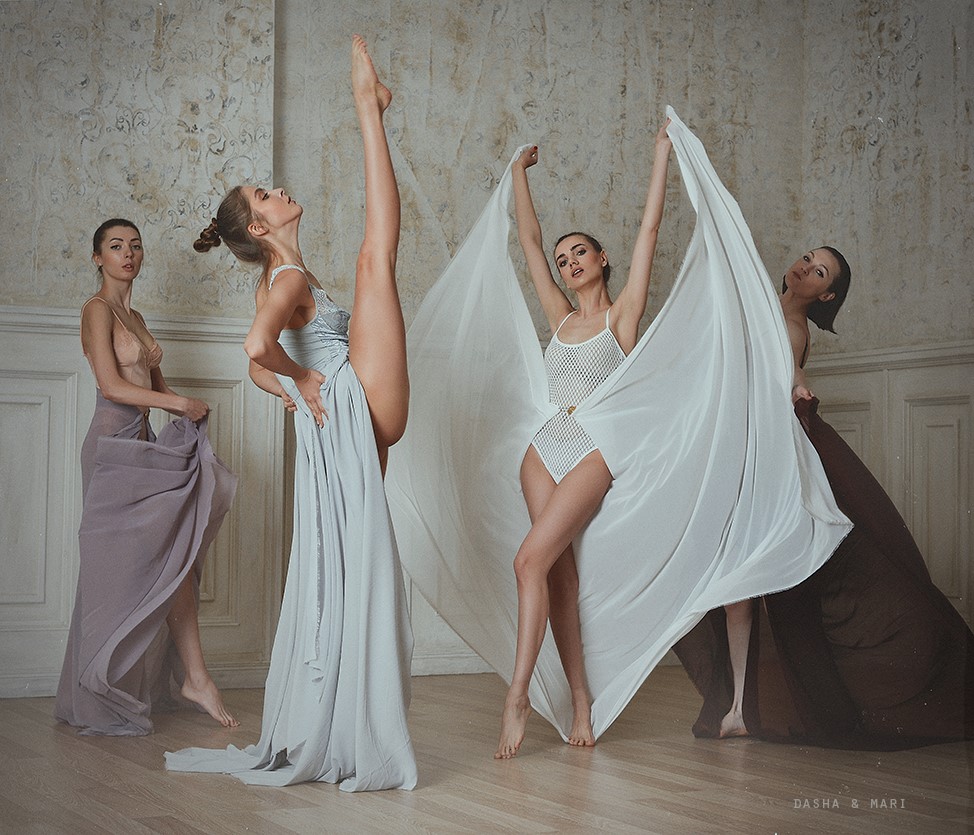
“Photography is simple for us,” Dasha insists. “We live in darkness. We want to turn that into light. To create deep moments. We want to create a brilliance for others.
“We don’t have to think much about doing that. We feel. We always have a conscious idea of what we want to do. We don’t need any great preparation, elaborate setups, working with others. This is just us, our passion. We don’t overthink. We just do it, take photos. Our personality is in them.”
As the twins sip their tea, and eagerly speak about other images; Blue Diamonds (seemingly promising undying affection, a woman leans provocatively close to her partner, and delicately holds her bare breast), and Riches From the East (depicting a dark-skinned, bare-breasted vixen, enticingly draped in a flowing white head scarf), there’s obvious joy edged in their voices. Also pure contentment, and fulfillment.
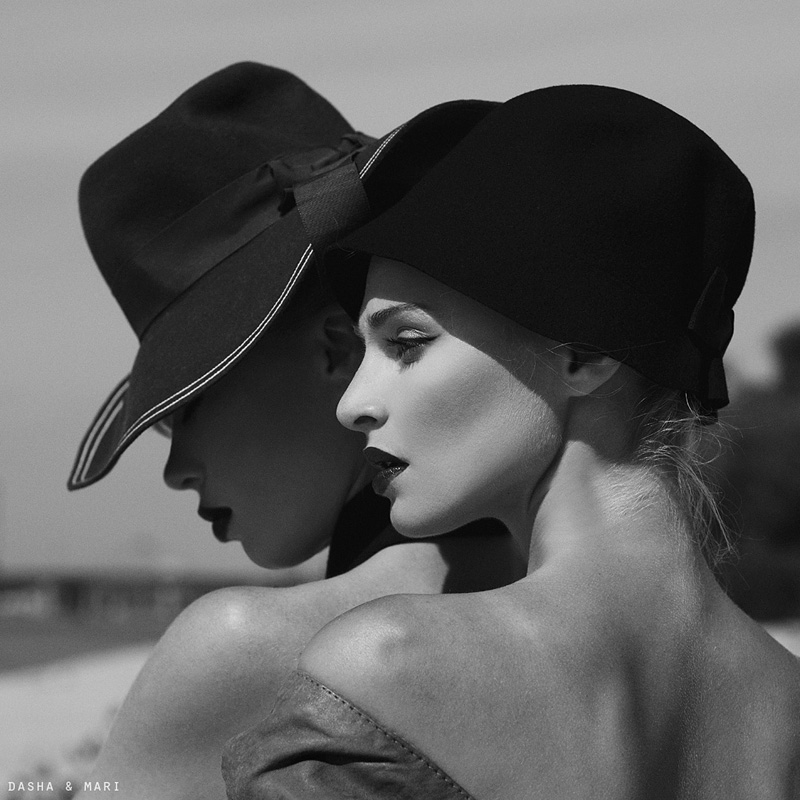
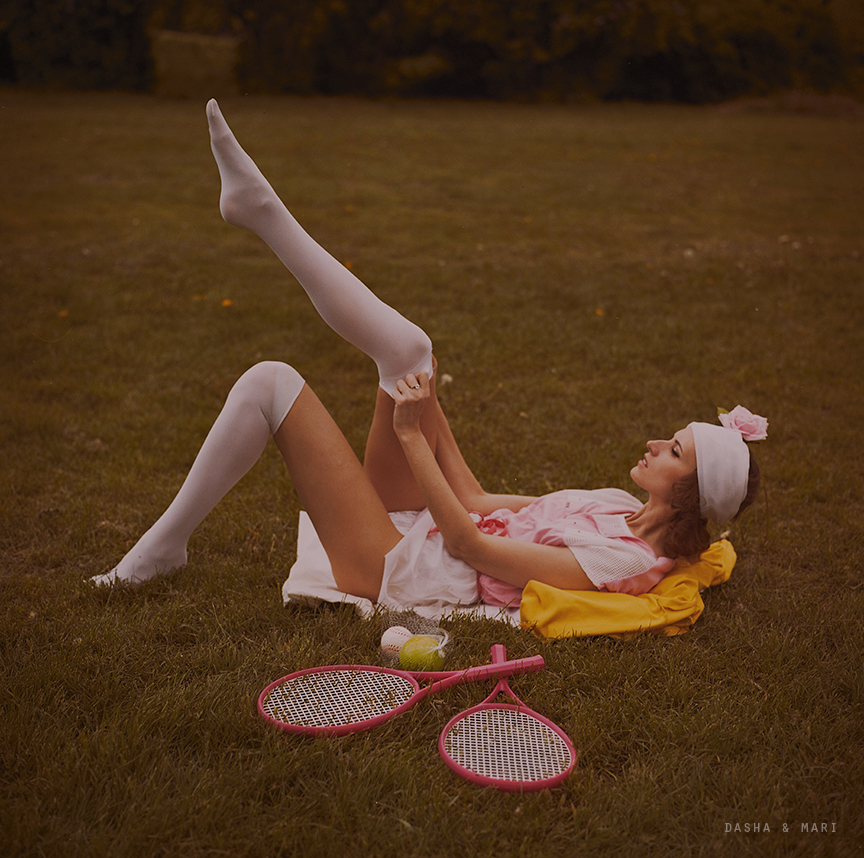
Yet what lies ahead for them? Can they continue to break boundaries, to upset Ukraine’s social mores? Financially constrained, they are working in a country where lesbians, gay men, transgenders and bisexuals face constant social and legal harassment. In such an atmosphere of “combating immorality,” photographs glrifying sexual freedom, or a woman’s urge to express her lust or even tenderness for another female, remain taboo.
Further complicating free expression—and the development of a vibrant market for artistic photographs—Ukraine remains locked in a strife-filled stalemate with Russia. Border hostilities continue, and the country’s internal divisions (along with governmental corruption) spark a certain social unrest , a war-weariness. None of these conditions are conducive to supporting the arts.
Can these two provocateurs survive in such an unsettled environment?
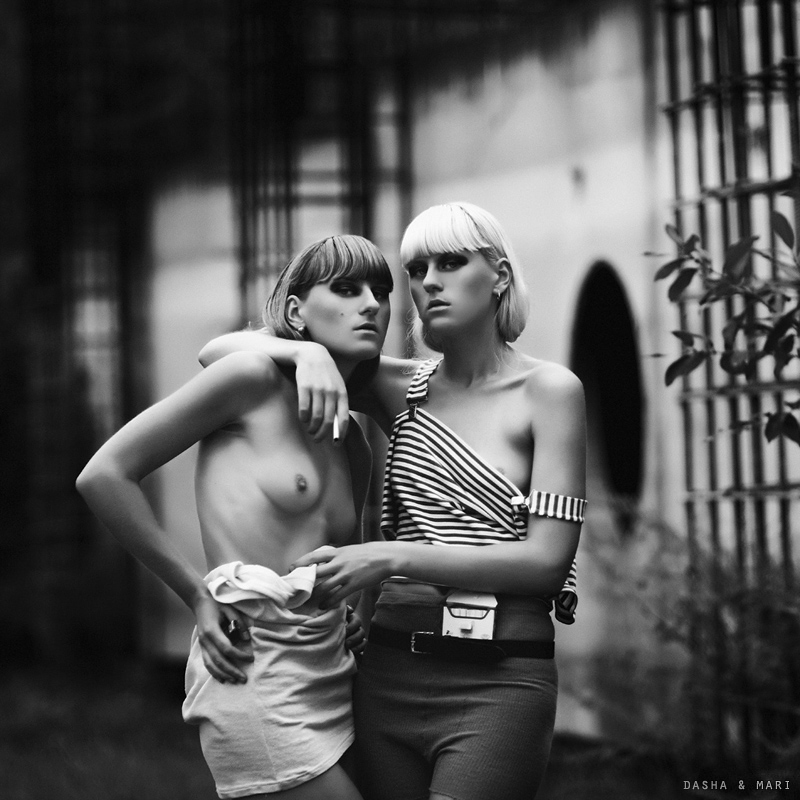
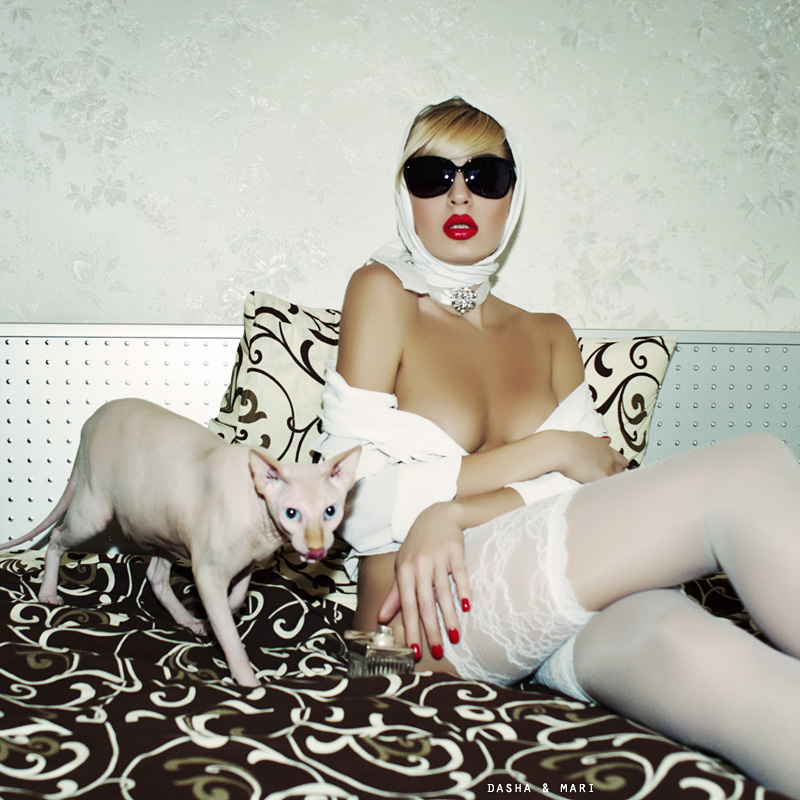
Despite exploring such emotionally-charged subjects as Sin, Eroticism and Seduction, they’ve continued to be rule breakers. Seemingly indifferent to incurring wrath from conventional, conservative critics, they’ve trusted their instincts, shown enough resilience to attract attention in other cities and at international art shows. Tatiana helped steel them to adversity, validated their retreating to a private, imaginative world—a safe, illuminated place “of the deep senses, spectacular light, and vivid emotions.”
They’ve been able to persist, be bold and resourceful, mainly because they have a rare, potent strength. Besides their penetrative vision, a talent for photographing “moments of engagement,” they have a unity, a natural connectedness. Together they can find constancy, a commonality that allows that “private world” of theirs to remain viable and to flourish.
“Whatever obstacles we face, we will realize beauty, realize our dreams,” insists Dasha, Mari nodding in agreement. “Nothing will stop us. Even if we upset some people, disturb the ordinary, we will continue to put ourselves out there. Express ourselves. Reveal ourselves. We can and we will!”
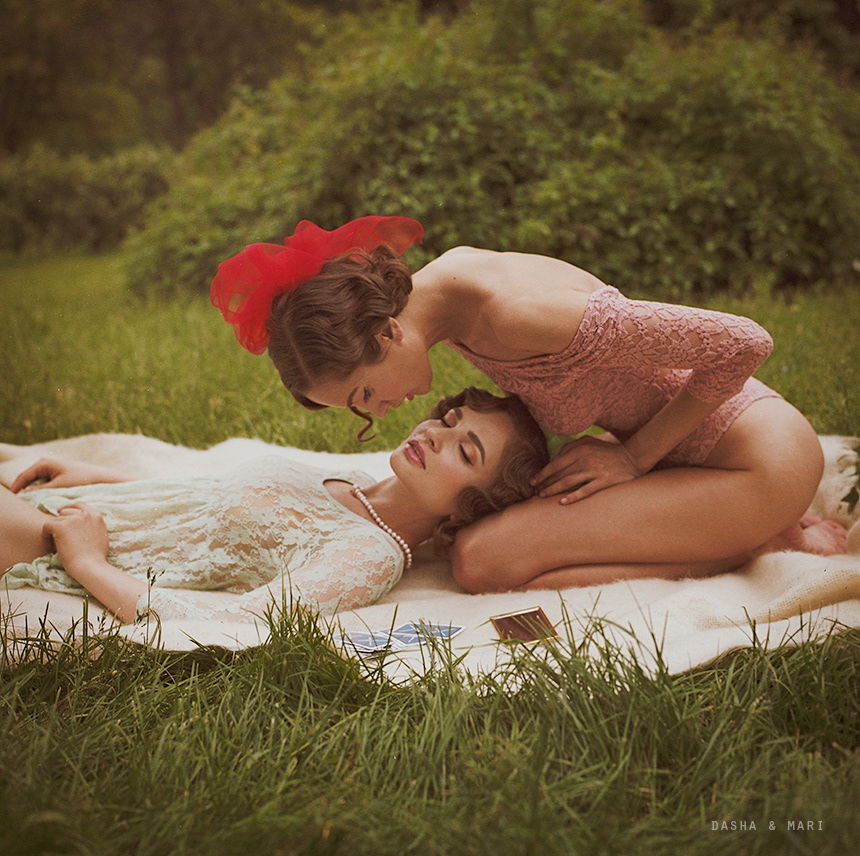
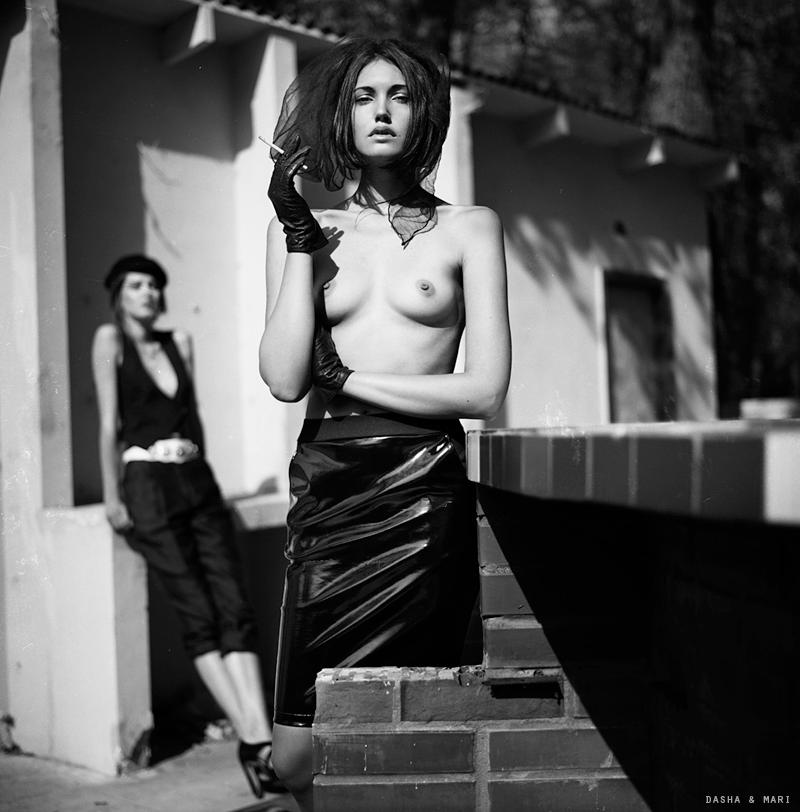
Written by Edward Kiersh

